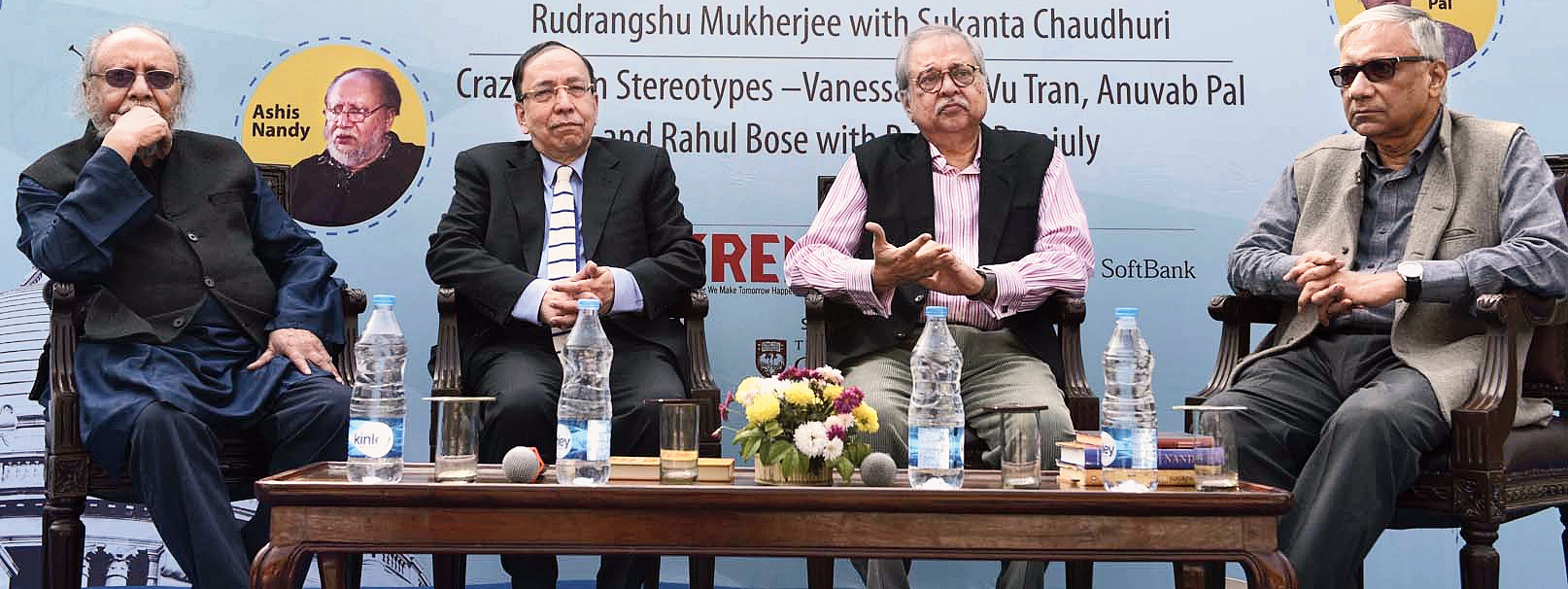Republic Day saw two historians, a sociologist and a teacher of English literature dwell on India as a Republic of Diversity.
Sukanta Chaudhuri, professor emeritus at Jadavpur University and moderator of the session at the Tata Steel Kolkata Literary Meet, in association with the Victoria Memorial Hall and The Telegraph, began by describing republic and diversity as “the two key words” in the theme.
The discussion at the Calcutta Club hovered over three key ideas — liberalism, nationhood and dissent. “Can we relate them? How do they bear upon each other?” Chaudhuri asked.
Historian and MP Sugata Bose admitted that post-colonial India was akin to colonial India in certain respects. “We did not mark as much of a break as we might have liked with the colonial past, especially with the question of dissent. We have retained Section 124 A (relating to sedition) in our statute book,” he said.
Bose travelled back to the early 20th century and spoke about political thought from the time. “Bipin Chandra Pal said we call our country Bharatbarsha. Who was Bharata? He was a legendary king but he was merely a king at the centre of a circle of kings.” Therefore, Bose said, Pal was suggesting one could not imagine India as a centralised bureaucratic dominion.
Chaudhuri steered the discussion towards “a happier legacy received from colonial times” — liberalism.
Rudrangshu Mukherjee, historian and chancellor of Ashoka University, pointed out an irony of liberalism in India. “There is an irony here. Liberalism arrived in India piggyback on British imperialism,” he said, but added that “some of the core ideas embedded in liberal thought were completely denied to India and Indian people”. Mukherjee listed the core ideas as dissent, tolerance, equality and non-discrimination.
“What they practised at home, they did not practise here. They didn’t make Indian citizens, they treated Indians as subjects,” he said.
The historian added there was another idea in liberalism that didn’t quite blossom under nationalism and “certainly not” in the post-colonial India: a non-interventionist state.
“The Constitution recognised individual liberty but in practice the Indian state was also an interventionist and a very powerful state… that often infringed and continues to infringe on individual rights and individual freedoms,” he said. “The legacy of liberalism both as an idea and liberalism in practice has been somewhat ambivalent and ambiguous.”
Sociologist Ashis Nandy pointed out how diversity is feared in every sphere of life. He cited the example of theatre actor Shriram Lagoo, who was also a doctor by training. “Thirty-five years after giving up his medical profession, he appeared in an advertisement of a chyawanprash, an ayurvedic tonic. He was rusticated by the Indian Medical Association,” he said.











